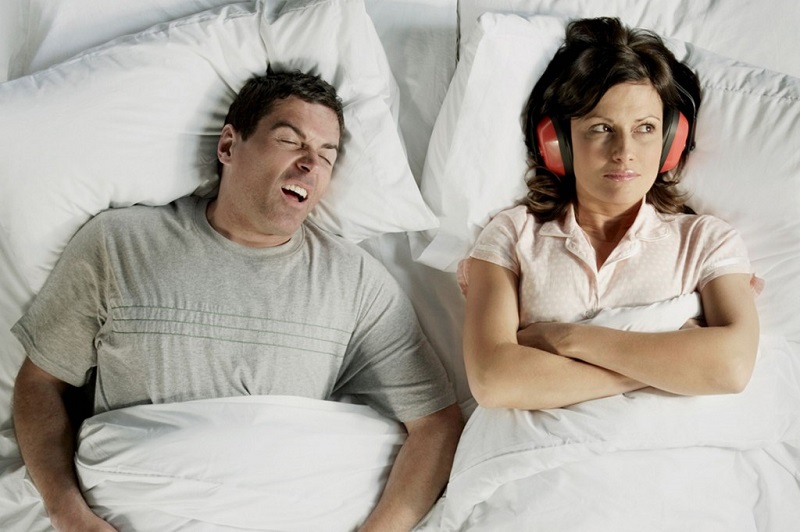Three peoples of 10 snore, but among the over-sixties it does 60 percent of men and 40 percent of women: almost an army of people sleeping loudly and forcing the innocent vigil as unfortunate spouses.
Why do you snore? When we sleep all the muscles relax, including those that keep the airway open. In particular, it lowers the soft palate and the tongue lies back against the pharynx. In this way, the air passage is obstructed, the flow velocity increases, the soft palate vibrates and precisely.
Several factors, however, predispose or aggravate snoring, for example …
- All diseases that can obstruct the airway, even nasal: enlarged tonsils, adenoids, deviated nasal septum, allergies, cancer …
- Obesity (fat accumulation around the throat makes it even more difficult air passage)
- Age (with the subsequent relaxation of the tissues)
- Alcohol and the use of sleeping pills that in addition to the nervous system, also relaxes the muscles …
- The anatomy of the jaw, etc …

The effects of snoring. Snoring leads to a poor quality of life: in fact snorers disturbs people’s sleep … but also your own. The snorer makes less at work, because it is less concentrated and less memory. It suffers more often of headaches, and even in a bad mood. But above all snoring is the forerunner and manifestation of obstructive sleep apnea syndrome, that of sleep apnea, a disorder of which our country affects about 5 percent of boys and 2 percent of females and may result in cardiovascular problems.
Sleep apnea occurs when the narrowing of the airways is so marked that causes the temporary block of respiration: for a few seconds does not arrive air to the lungs and then the blood is not oxygenated. When the conversazione reaches values that the brain feels as dangerous sleep becomes more shallow, the tone of the muscles increases, the tongue moves forward, the airway is free and you can breathe again. This cycle can be repeated dozens of times a night. During apnea, to compensate for the lack of oxygen, the body increases the heart rate and raises the pressure, which is why those who suffer from important forms of apnea, may risk problems with their heart and blood pressure.
How to stop snoring?
If you snore for bad behavior, the obvious advice is to avoid them: do not drink alcohol and do not take sleeping pills, slimming …
In some cases (note: well-selected by an otolaryngologist) can resort to surgery. The actions today are different and the choice depends on the causes of snoring, e.g. if the jaw is small or has moved backward you can move it forward. If the problem are the tissues of the throat (uvula, soft palate …) that excessively hinder the passage of air, you can think about their removal. Among the non-surgical techniques there electrotherapy of the soft palate, or the recent method called the “Roman blinds” which consists in an elevation of soft tissue by means of wires (hence the name that invokes housewives curtains). As for the tools on the market it is good to know that not all are good for everyone: the nasal patch – to say – it helps to not snoring but only those who do it for problems … the nose.
The true and false of the snorer
Eating light helps to not snoring: false, It can only help you if you snore not for anatomical reasons,
Sleep on your back helps no snoring: false, sleeping belly up can promote snoring
Sleep with a pillow top helps not to snore: true, counteracts the tendency of the tongue to fall backwards
The surgery is always the final solution is: false, it depends on the reasons of snoring,
Snoring indicates a very deep sleep: false,
Drinking alcohol in the evening promotes snoring: true,
Obese people snore more: true,
Sleep apnea promote falling asleep at the wheel: true.
Statistical data say that the sufferer is likely to fall asleep in the car considerably more than the others because of sleep strokes caused by frequent nighttime awakenings and decreased or absent deep sleep phase.
